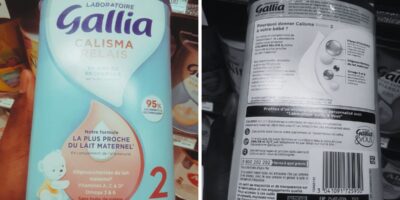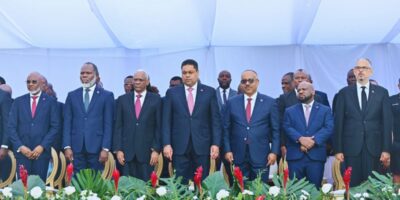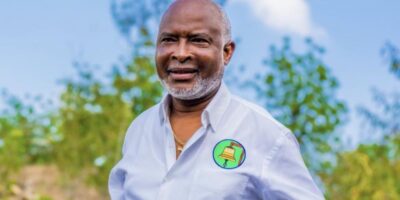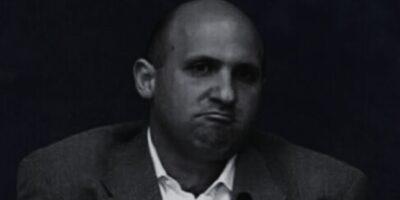The international measures, including those of the United Nations from October 21, 2022 on the crisis that has become endemic in Haiti, do not address the real sources of insecurity, according to three political activists and security experts
It’s a busy month of October for announcements. The United States says it is suspending visas. The United Nations is issuing a resolution to sanction the leader of the G9 gang coalition, Jimmy Cherizier, with other gang leaders and their associates to follow.
Three political activists and security experts interviewed by AyiboPost remain puzzled: these actions do not address the real sources of insecurity. And as such, will not solve much.
“These measures can in no way reduce the political and financial power of the people who support the gangs in Haiti,” says Djems Olivier, a doctor in geography and security expert.
“A gang leader cannot be punished because he is sanctioning himself by limiting his movements and hardly uses the services of formal institutions,” adds Djems Olivier, referring to a punitive measure taken by the United Nations on 21 October 2022. This decision sets up a committee of experts who have to put together a list of people to be punished by imposing a ban on their departure and their ability to acquire lethal equipment.
These actions do not address the real sources of insecurity.
Without the strengthening of the country’s institutions, especially that of the judiciary and its penitentiary system, even the arrest of gangsters is a futile endeavor.
“We have had powerful gang leaders arrested in the past, but they control their armed gangs from their prison cells,” said Djems Olivier. This was the case for the former leader of the 400 Mawozo group, Germine Joly alias Yonyon, now in prison in the United States, and the late Arnel Joseph, former number one of an armed gang in Village de Dieu.
Recent gang attacks have caused nearly 100,000 displacements in Port-au-Prince, according to reports from the International Organization for Migration (IOM). 4.7 million people, nearly half of the country, are in desperate need of food.
Read also : Perspective | Why Are Haitian Protestors Waving Russian Flags ?
Haiti remains one of the most unequal countries in the hemisphere. According to the World Bank, the richest 20% of the population owns more than 64% of the country’s total wealth, while the poorest 20% owns less than 1%.
Much of this wealth is built on corruption, non-payment of customs taxes and crime. The misery caused by inequality pushes some young people, sometimes taken over by powerful economic and political actors, towards crime. This completes the circle of cyclical violence.
According to physician and political activist, Jean Enold Buteau, only the organization of a security meeting in Haiti could address the key elements of the insecurity crisis in Haiti.
Haiti remains one of the most unequal countries in the hemisphere.
“All sectors must come together and reflect on this phenomenon by providing answers to basic questions in order to determine the size of the territory acquired by the gangs, the types of weapons and materials they have, where they save the money obtained from their activities, who their families are and where they reside,” adds Jean Enold Buteau.
In early October, the government asked the international community for military assistance. The United States and Mexico are supporting a resolution at the United Nations that would introduce an intervention sponsored by the organization, but not led by it.
This decision leaves some citizens confused. The spokesman for the Alternative socialiste party (ASO) insists on the need for a meeting on insecurity. “The data gathered would make it possible to define a strategy with all of the actors at the national level for an effective fight against banditry”, he concludes.
This decision leaves some citizens confused.
“Who has enough legitimacy to lead the negotiations?” The current Prime Minister, chosen by the assassinated former president Jovenel Moïse, but having been installed with the support of the Core Group led by the United States, is now facing recurrent demonstrations. He is criticized for his desire to remain in power and his inability to make progress against the phenomena of insecurity and precariousness.
Read also : The assassination of Jovenel Moïse as told by an executive from the PNH
This aspect of the issue does not seem to be at the top of the list of Haiti’s partners. Sociologist and university professor, Illionor Louis, says he took care to follow the UN assembly on Haiti and was surprised by how little the debates centered on the protests on the ground against the high cost of living and the increase in fuel prices. None of the interventions from UN members, he notes, highlighted the four weeks of demands expressed by the population against the current leaders.
“Does the United Nations really know what is happening in Haiti or do they prefer to ignore it in order to make a mockery of an entire population by supporting their ally in government”, the teacher wonders.
In the process, the United States of America is pushing for an international stabilization force to be ready to intervene in Haiti. Negotiations are underway, including with Canada, to determine who will participate in this initiative. Canada recently sent a delegation to assess the situation on the ground.
Read also : King Charles III was involved in the failed reconstruction of Port-au-Prince
Success is not guaranteed. Djems Olivier believes that at first, the force will have a deterrent nature capable of scaring off the armed people. “Most heavily armed men can retreat or go into their shells. But I don’t think there will be a definite improvement since it was the same thing on the sidelines of the United Nations Stabilization Mission in Haiti (MINUSTAH),” he said.
Experts note some improvement in terms of the security situation in-country following the arrival of soldiers from this mission, but the situation has deteriorated and become progressively worse over the past ten years. This suggests that the root causes of insecurity have not been addressed.
Read also : Why does the United States continue to occupy a Haitian island ?
“There has never been any real disarmament and the apparatus that turns ordinary peaceful people into bandits in the country has never been dissolved or attacked, observes Olivier Djems. This is why there are so many gangs since MINUSTAH’s departure.”
English translation by Didenique Jocelyn and Sarah Jean.
Cover photo : Security Council unanimously votes to resolve Haiti’s crisis, October 21, 2022 | © corsematin







Comments